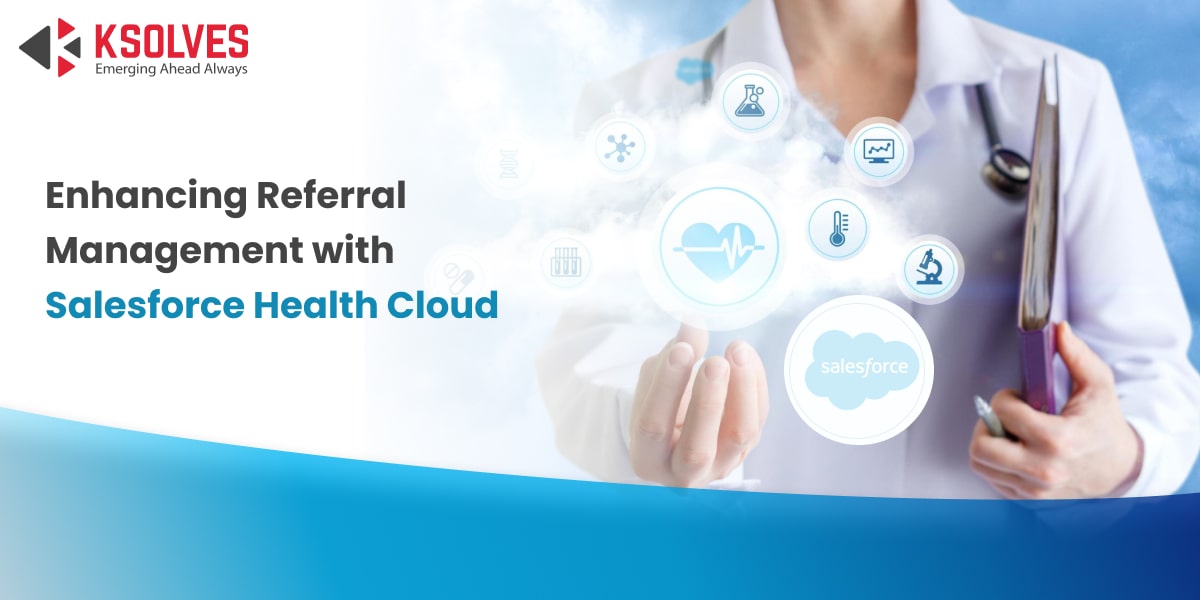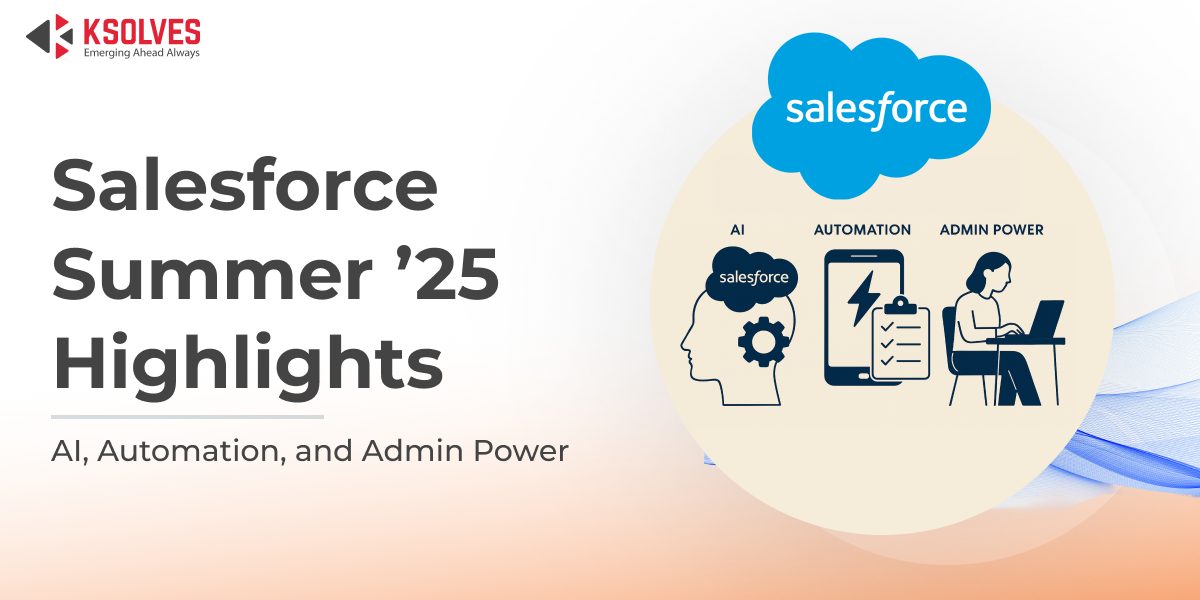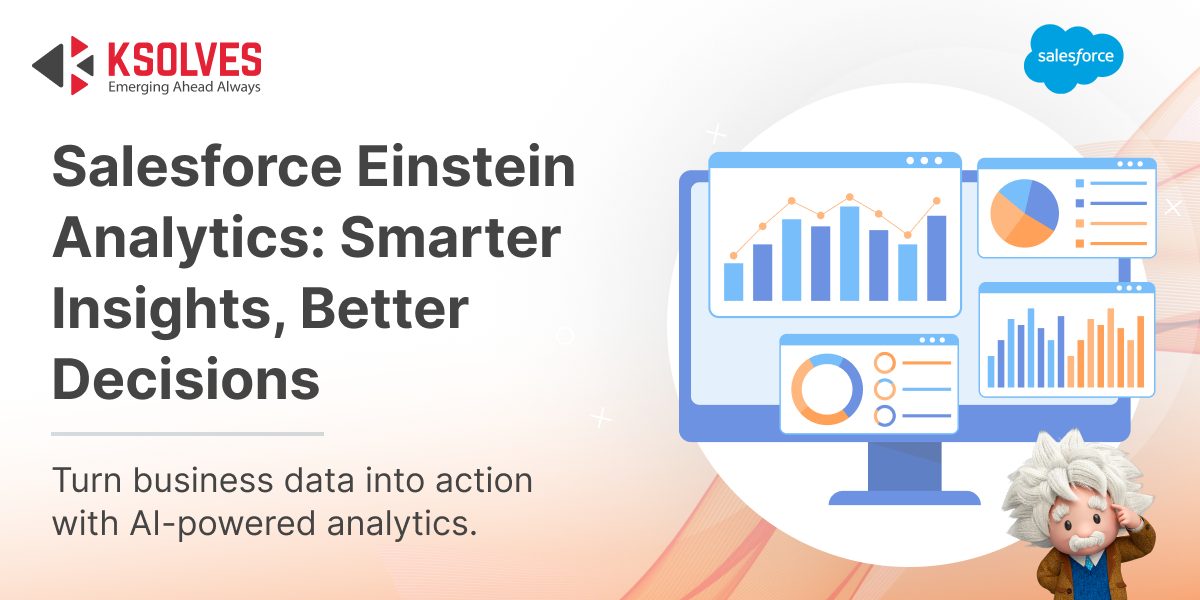Streamlining Referral Management with Salesforce Health Cloud for Better Patient Care
Salesforce
5 MIN READ
July 24, 2024

In the complex world of healthcare, managing patient referrals efficiently is crucial for ensuring timely and effective treatment. However, many healthcare providers need help with referral management, including communication gaps, delays, and lack of coordination.
This is where Salesforce Health Cloud comes in. Salesforce Health Cloud is designed to transform healthcare management by providing a comprehensive, integrated platform that streamlines processes and improves patient outcomes.
In this blog, we will explore what Salesforce Health Cloud is, its benefits, key features, and how it enhances referral management.
What is Salesforce Health Cloud?
Salesforce Health Cloud is a patient relationship management (PRM) solution built on the Salesforce platform. It provides healthcare organizations with a complete view of patient data, enabling better care coordination and patient engagement. Salesforce Health Cloud integrates with electronic health records (EHRs) and other healthcare systems, offering a unified platform for managing patient information, care plans, and interactions. Unlike traditional healthcare management systems, Health Cloud focuses on building strong patient relationships and delivering personalized care.
Benefits of Salesforce Health Cloud
1. Improved Patient Engagement
Salesforce Health Cloud revolutionizes patient engagement by offering tools that facilitate personalized communication and interaction. By leveraging patient data, healthcare providers can create customized care plans and send targeted messages that address individual needs.
For instance, Health Cloud enables automated reminders for appointments, medication schedules, and follow-up visits, ensuring that patients stay on track with their treatment plans.
Additionally, it supports the creation of patient portals where individuals can access their health information, communicate with their care team, and receive educational materials. This continuous and personalized engagement not only improves adherence to care plans but also enhances patient satisfaction and outcomes.
Also read: Implementation of Salesforce Health Cloud for Improved Patient Experience
2. Enhanced Care Coordination
Effective care coordination is crucial for delivering comprehensive and consistent patient care. Salesforce Health Cloud provides a 360-degree view of patient data, which includes medical history, current treatments, and social determinants of health. This holistic view enables all members of the care team to access and update patient information in real time, fostering better collaboration and communication.
For example, a primary care physician can seamlessly share patient information with a specialist, who can then add their observations and treatment plans. This integration ensures that everyone involved in the patient’s care is well-informed and aligned, reducing the risk of errors and duplicative efforts. It also supports multidisciplinary team meetings and case discussions, which are vital for managing complex cases.
3. Data Security and Compliance
In the healthcare industry, data security and compliance with regulations such as the Health Insurance Portability and Accountability Act (HIPAA) are paramount. Salesforce Health Cloud is designed with robust security features to protect patient information. It includes data encryption, access controls, and audit logs to monitor and secure data access.
Compliance with HIPAA and other healthcare regulations ensures that healthcare organizations can trust Health Cloud to handle sensitive patient data responsibly. Furthermore, Salesforce continuously updates its platform to address emerging security threats and compliance requirements, providing peace of mind to healthcare providers and their patients.
4. Scalable and Customizable Solutions
One of the standout features of Salesforce Health Cloud is its scalability and customization capabilities. Health Cloud can be tailored to fit the specific needs of any healthcare organization, regardless of size or specialty. For small clinics, it offers essential tools for managing patient relationships and care coordination without the need for extensive IT infrastructure.
The flexibility of Health Cloud allows organizations to add or modify features as their needs evolve, ensuring that the platform grows with them. Custom dashboards, reports, and workflows can be created to match specific operational requirements, enhancing efficiency and effectiveness across the board.
Key Features of Salesforce Health Cloud
1. Patient Profiles and 360-degree Views
Salesforce Health Cloud consolidates patient information from various sources, providing a comprehensive view of each patient’s health history, current conditions, and treatment plans. This 360-degree view ensures that healthcare providers have all the necessary data at their fingertips, including medical history, lab results, medications, and social determinants of health.
By having a holistic understanding of the patient’s health, providers can make more informed decisions, personalize treatment plans, and improve overall patient care. This integration of data from multiple sources also helps in identifying gaps in care and proactively addressing potential health issues.
2. Care Team Collaboration Tools
Health Cloud includes robust care team collaboration tools that facilitate communication and coordination among care team members. These tools ensure that all team members, from primary care physicians to specialists and nurses, are informed and aligned on a patient’s care plan.
Features like secure messaging shared care plans, and real-time updates allow for seamless collaboration, reducing the risk of miscommunication and errors. This integrated approach ensures that everyone involved in a patient’s care is on the same page, enhancing the quality and efficiency of care delivery and ultimately leading to better patient outcomes.
3. Integration with EHRs and Other Systems
One of the key strengths of Salesforce Health Cloud is its ability to integrate seamlessly with existing Electronic Health Records (EHRs) and other healthcare systems. This integration enables healthcare providers to access and update patient information in real time, ensuring that the most accurate and up-to-date data is always available.
By bridging the gap between different systems, Health Cloud helps to eliminate data silos, reduce duplication of effort, and improve the overall efficiency of healthcare operations. This seamless flow of information supports comprehensive care coordination and enhances the ability to deliver high-quality patient care.
4. Analytics and Reporting Capabilities
Salesforce Health Cloud offers powerful analytics and reporting capabilities that help healthcare providers track outcomes, identify trends, and make data-driven decisions. Advanced analytics tools allow providers to analyze patient data, monitor performance metrics, and gain insights into population health.
Customizable dashboards and detailed reports enable healthcare organizations to visualize data in meaningful ways, facilitating strategic planning and operational improvements. By leveraging these analytics capabilities, providers can identify areas for improvement, optimize resource allocation, and enhance patient care through evidence-based practices.
5. Mobile Accessibility
Health Cloud’s mobile app provides care teams with the flexibility to access patient information and collaborate from anywhere, ensuring continuity of care. Whether in a clinic, hospital, or on the go, healthcare providers can review patient records, update care plans, and communicate with team members through their mobile devices.
This mobile accessibility ensures that critical information is always at hand, enabling timely and informed decision-making. By supporting remote access, Health Cloud enhances the ability to deliver responsive and coordinated care, improving patient outcomes and satisfaction.
Enhancing Referral Management with Salesforce Health Cloud
1. Why Need Referral Management for Salesforce Health Cloud
- Streamlined Referral Processes
- Improved Communication Between Providers
- Tracking and Managing Referrals
- Enhancing Patient Experience Through Timely Referrals
Effective referral management is essential for ensuring patients receive timely and appropriate care. Salesforce Health Cloud enhances referral management by streamlining the referral process and improving communication between providers.
2. Streamlined Referral Processes
Salesforce Health Cloud automates various aspects of referral management, significantly reducing the need for manual tasks and minimizing the risk of errors. Providers can effortlessly create and send referrals, track their status, and receive real-time updates.
This automation speeds up the referral process, ensuring that patients are quickly referred to the appropriate specialists. By streamlining these processes, Health Cloud not only enhances operational efficiency but also frees up healthcare providers to focus more on patient care rather than administrative tasks, ultimately leading to a more efficient and patient-centered healthcare system.
3. Improved Communication Between Providers
Health Cloud’s robust collaboration tools facilitate seamless communication between referring providers and specialists, ensuring that all relevant information is shared and discussed promptly. These tools include secure messaging, shared care plans, and real-time updates, which allow for a cohesive and coordinated approach to patient care.
Improved communication helps eliminate misunderstandings and ensures that all team members are on the same page regarding a patient’s treatment plan. This integrated communication enhances the overall quality of care, ensuring that patients receive timely and appropriate medical attention from the right specialists.
4. Tracking and Managing Referrals
Salesforce Health Cloud provides healthcare organizations with the tools to easily track the status of referrals, ensuring that no patient falls through the cracks. The platform offers notifications and alerts to keep the referral process on track, enabling providers to monitor and manage each step effectively.
With comprehensive tracking capabilities, healthcare teams can see where a referral is in the process, follow up as necessary, and ensure that patients receive the care they need without unnecessary delays. This proactive approach to managing referrals enhances patient safety and improves the overall efficiency of healthcare delivery.
5. Enhancing Patient Experience Through Timely Referrals
By ensuring referrals are handled efficiently, Salesforce Health Cloud helps reduce wait times and improve patient satisfaction. Timely referrals mean that patients receive the care they need when they need it, which is crucial for their health outcomes and overall experience.
By minimizing delays in the referral process, Health Cloud helps to alleviate patient anxiety and ensures a smoother transition between different levels of care. This efficiency not only enhances the patient experience but also leads to better health outcomes, as timely medical intervention is often critical in preventing the progression of illnesses.
Why We Need Enhanced Referral Management
Current challenges in referral management, such as communication gaps and delays, can have serious implications for patient care. Timely and accurate referrals are crucial for diagnosing and treating conditions promptly. Enhanced referral management benefits not only patients but also healthcare providers and organizations by improving efficiency, reducing costs, and ensuring better patient outcomes.
Case studies have shown that organizations implementing Salesforce Health Cloud for referral management have seen significant improvements in the speed and accuracy of referrals, resulting in better patient care and satisfaction. For example, a large healthcare system reduced referral processing time by 30% after adopting Health Cloud, leading to quicker diagnoses and treatments.
Conclusion
Salesforce Health Cloud plays a vital role in transforming referral management in healthcare. By providing a comprehensive, integrated platform, it helps healthcare providers streamline processes, improve communication, and ensure timely, effective patient care. The benefits of Health Cloud extend beyond referral management, offering a scalable, customizable solution that enhances overall healthcare delivery.
If you’re looking to enhance your referral management and improve patient outcomes, Salesforce Health Cloud is the solution you need. Contact Ksolves today to learn more about how we can help you implement and optimize Salesforce Health Cloud for your organization. Visit our website and read our Salesforce Health Cloud case study. Get in touch with our team to get started on your journey towards better healthcare management.




AUTHOR
Salesforce
Md. Asad Khan, an expert Technical Project Manager at Ksolves, who is a certified Salesforce architect at Ksolves, brings 7+ years of experience. He specializes in FSL, B2B, Service & Sales Cloud, and Non-profit cloud, excelling in APEX, Aura Component Framework, Lightning Components, Triggers, Visualforce, and creating insightful dashboards and reports.
Share with